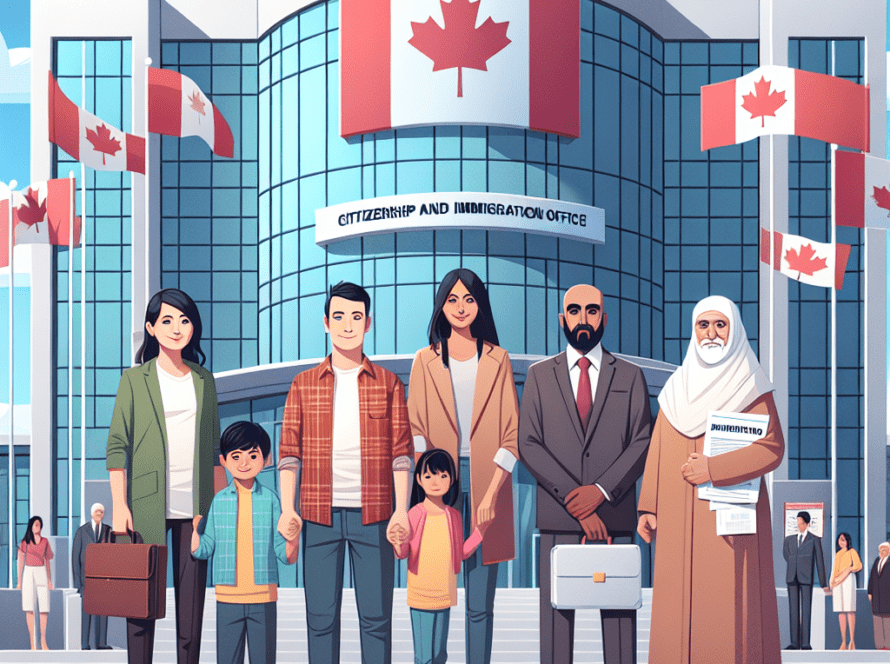7 Work Permit Options for International Graduates in Canada

Navigating New Horizons: Alternatives to the PGWP for International Graduates in Canada
As Canada continues to attract international talent, recent changes to the Post-Graduation Work Permit (PGWP) have left many graduates searching for alternative pathways to secure employment. Effective November 1, 2024, revised eligibility criteria now restrict PGWP access for college diplomas and vocational certificates to those that align with Canada’s labor market needs. This shift necessitates a deeper understanding of other work permit options available to international graduates. Here’s a concise guide exploring seven viable alternatives.
1. Free Trade Agreement Work Permits
Graduates from countries with free trade agreements, such as CUSMA, can opt for specialized work permits under the International Mobility Program. This route typically requires a job offer that meets specific FTA provisions. It’s essential for applicants to familiarize themselves with these agreements to understand eligibility.
2. International Experience Canada (IEC)
The IEC program provides various work permits for youth aged 18 to 35 from countries with bilateral agreements with Canada. Options include:
- Working Holiday: Allows graduates to work for any employer, requiring financial proof and health insurance.
- Young Professionals: Limited to employer-specific roles, requiring a job offer.
- International Co-op: Requires a placement in the applicant’s field of study.
While the Working Holiday permit is popular, it operates on a lottery basis, making it competitive.
3. Temporary Foreign Worker Program (TFWP)
The TFWP allows graduates to work with employer-specific permits, contingent upon a positive Labour Market Impact Assessment (LMIA). This process ensures the hiring of foreign workers does not adversely affect the Canadian labor market. The Global Talent Stream within this program fast-tracks applications for high-demand tech positions, making it an appealing option for skilled graduates.
4. Atlantic Immigration Program (AIP)
Designed for those seeking employment in Canada’s Atlantic provinces, the AIP requires a job offer from a designated employer and provincial endorsement. Notably, this program can lead to permanent residency, making it a strategic choice for long-term settlement in Canada.
5. Provincial Nominee Program (PNP)
Through the PNP, graduates can work in provinces with high-demand skills after receiving a nomination and support letter. Some provinces, like Alberta and Manitoba, have introduced temporary measures to expedite processing, which is advantageous for timely employment.
6. Spousal Open Work Permit for Post-Secondary Studies
Spouses of international students enrolled in eligible programs can apply for an open work permit, allowing them to work anywhere in Canada for the duration of their partner’s study permit. This option is particularly beneficial for families seeking financial stability.
7. Spousal Open Work Permit for Family Sponsorship
Similar to the previous option, spouses of Canadian citizens or permanent residents can apply for open work permits during the family sponsorship process. This avenue provides financial support while permanent residency applications are being processed.
Key Strategies for Success
For international graduates navigating the intricate landscape of Canadian work permits, proactive planning is essential. Here are a few strategies to maximize your chances of success:
- Research Thoroughly: Understand the specifics of each work permit option, including eligibility criteria and application processes.
- Consult Experts: Seek advice from immigration professionals to navigate complex regulations.
- Network: Leverage connections with alumni and industry professionals to uncover job opportunities.
- Stay Informed: Regularly monitor immigration policies for updates that might impact your application.
Conclusion
The tightening of PGWP eligibility has opened the door to various alternative work permit options for international graduates in Canada. By exploring these alternatives, graduates can pave their way toward a successful career in Canada. For those ready to take the next step, engaging with immigration advisors and leveraging available programs will be crucial in achieving their goals. Embrace the challenge, and transform it into an opportunity for a bright future in Canada.
Stay informed and connected with resources like Newsnowgh.com for ongoing updates about work permits and visa guidance tailored to your needs.



